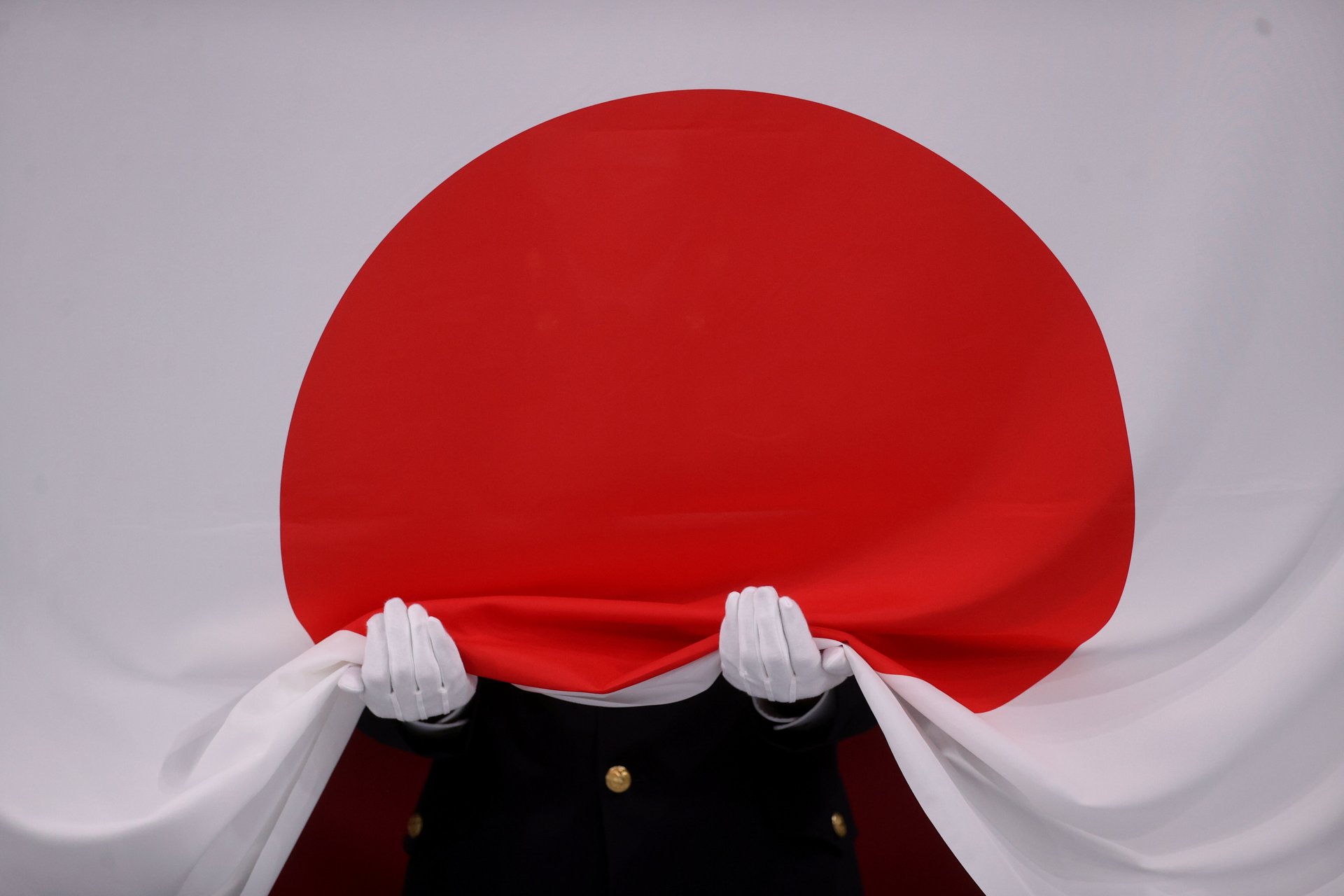Japan minted a new economic security minister to fix supply chain disruptions
Japan has a brand new cabinet-level position in its government: a minister of economic security. Takayuki Kobayashi’s portfolio will entail tackling some of the most pressing geopolitical issues of the 21st century, including shoring up supply chains, securing critical infrastructure, protecting technological advantages, and countering economic espionage.


Japan has a brand new cabinet-level position in its government: a minister of economic security. Takayuki Kobayashi’s portfolio will entail tackling some of the most pressing geopolitical issues of the 21st century, including shoring up supply chains, securing critical infrastructure, protecting technological advantages, and countering economic espionage.
The economy and security “are intermixing more and more nowadays,” a freshly minted Kobayashi said in his first news conference. The 46-year-old three-term lawmaker, who goes by “Kobahawk” on Twitter (taka means hawk in Japanese), is tasked with making sure the Japanese government, across its ministries, “deal[s] with the economy and security as one.”
Japan’s high-powered focus on economic security comes as many major nations begin scrutinizing in earnest their supply chains—from raw material access to manufacturing capabilities, the strengths and vulnerabilities of infrastructure like pipelines and undersea cables, and the competitiveness and resilience of critical industries like semiconductors and rare earth magnets.
🎧 For more intel on the global supply chain, listen to the Quartz Obsession podcast episode on rare earths. Or subscribe via: Apple Podcasts | Spotify | Google | Stitcher.
“As far as I know, this is the very first economic security [ministerial] role that has been created anywhere in the world,” said Akira Igata, executive director of the Center for Rule-Making Strategies at Tama University in Tokyo.
In creating the post, Japan’s new prime minister, Fumio Kishida, did not explicitly say the goal is to counter an increasingly aggressive China, just as Japan’s move last month to protect critical sectors from foreign takeovers never mentions China by name. But the country inevitably looms large. “These are all responses to the new reality of China becoming much stronger, China being dissatisfied with the status quo, China exploiting the system,” said Igata.
What is economic security?
Economic security is a broad term without a concise and established definition.
The US, under the Trump administration, declared (pdf) that “[e]conomic security is national security.” Meanwhile, the White House’s 100-day supply chain review (pdf), ordered by president Joe Biden, defined it as “steady employment and smooth operations of critical industries.”
That the concept defies easy definition says a lot about how it has evolved over the decades. A policy paper (pdf) laying out recommendations for a Japanese economic security strategy, published last December by the ruling Liberal Democratic Party (LDP), explained it succinctly: “Looking back over history, many conflicts between nations in the past revolved around energy and other resources. In those days, the risk of depending on other countries for resources fundamental to a nation’s survival was so evident that any reference to ‘economic security’ was unnecessary as such.”
Today, economic and national security go far beyond securing things like oil, water, and borders. At stake are supply chains that criss-cross the globe, a digital economy that is still largely borderless, and key technologies licensed for use worldwide even as their core patents are held only by a handful of countries.
Enter Kobayashi, whose job it now is to guide Japan through this maze of complexities—making the country both stronger and more resilient to the threat of crippling economic coercion from adversarial nations. According to LDP secretary general and former economic minister Akira Amari, the big picture will be key for Kobayashi, who must be able to “give instructions to all ministries.”
“Japan’s economic statecraft awakening”
Some experts say this reckoning is a long time coming. “2010 should have been a wakeup call, but…the rapid policy changes really happened over the past two or three years,” Igata says. That timeframe overlaps with a markedly more aggressive China, from its crackdown on Hong Kong and belligerent “wolf warrior” diplomacy to punitive economic measures against Australia.
What happened in 2010 was China’s sudden embargo on rare earth exports to Japan over a fishing trawler dispute. Japan was almost entirely dependent on China for the critical minerals, and the incident exposed an acute vulnerability. In the ensuing years, Japan significantly cut its dependence on China for rare earths, but “they haven’t really been thinking about economic security as a more widespread phenomenon,” says Igata. Until now.
In a recently published article, Igata and Brad Glosserman describe this shift as ”Japan’s economic statecraft awakening,” referring to how Tokyo has in the past couple of years broadened its strategic thinking on the building blocks of national security. They point to the launch last April of a brand new economic division within the existing National Security Secretariat as a key development in Japan’s strategic priorities. Kobayashi’s role is just the latest in a series of moves to “increase [Japan’s] economic security potential,” said Igata. And that isn’t necessarily confined to government: Japanese officials reportedly want companies in the nation’s strategic sectors to also appoint economic security executives.
Meanwhile, Japan is working with Australia and India to make supply chains more resilient and to counter China’s trade dominance in the Indo-Pacific—an initiative that Beijing quickly labeled “artificial” and “unfavorable” to the global economy. Tokyo and Washington are also cooperating on critical supply chain issues.
For now, the most immediate task for Kobayashi may be to draft a comprehensive law to promote all kinds of economic security measures, which is expected to be tabled at the next parliamentary session in the Japanese Diet starting in January.